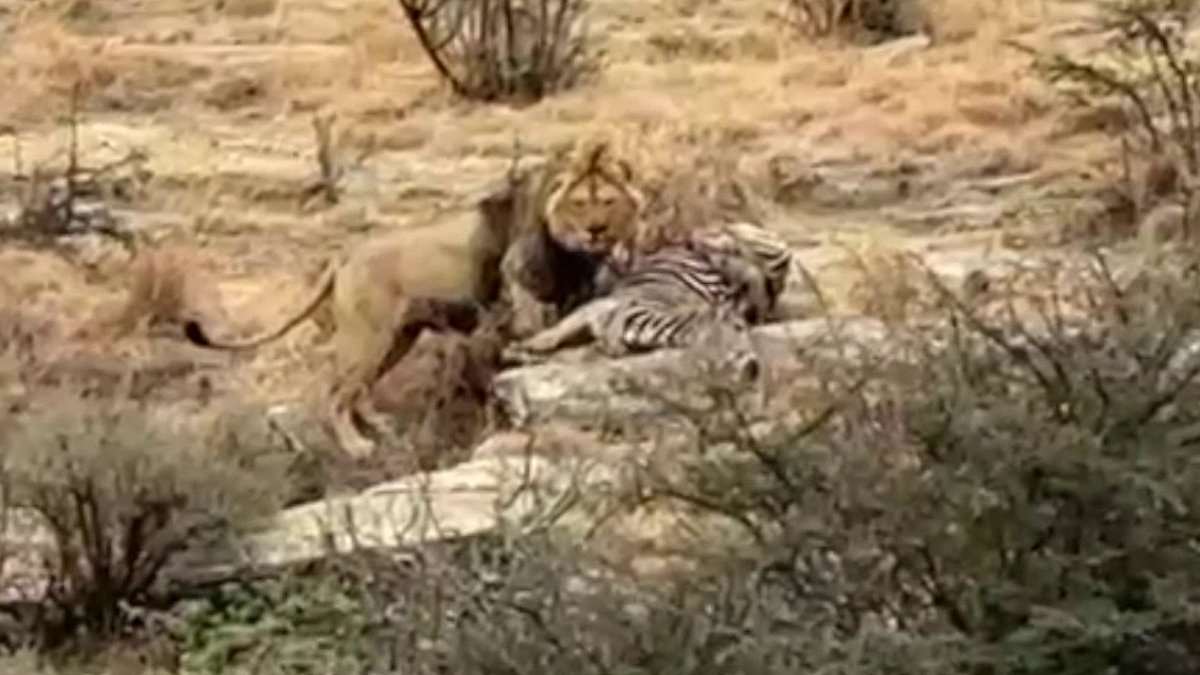For the first time, a lion born in captivity in the UK has killed after being returned to the wild – and these astonishing pictures capture the hunt.
Experts and zoologists believed it impossible, yet here three-year-old Azi tracks a herd of zebras across the grasslands of South Africa and takes down his prey.
Azi and his brother Zazu were hand-raised by the team at The Aspinall Foundation, a conservation charity run by Damian Aspinall, which aims to give animals born in captivity the opportunity to live in the wild.
The pair were born at Port Lympne Reserve and were transferred to Howletts Wild Animal Park in Kent after being rejected by their pride as cubs.
They were relocated from Howletts to a specialist 500-acre sanctuary in South Africa at the age of one and ten months.
At the Love Lions Alive sanctuary, Azi and Zazu underwent two years of acclimatisation and preparation. They were introduced to the new climate and fed a diet of game meat including zebra, impala and blesbok to prepare to hunt for themselves.
The lions were given an irregular feeding pattern to mimic the eating habitats of lions in the wild, who do not hunt every day and gorge feed around twice a week.
To prepare them to be self-sufficient, the conservationists focused on building up the lions’ stamina and muscle strength which included carcass feeding. The lions’ food was strung up at heights that forced them to use their entire bodies to bring the food to the ground.
The sanctuary includes wild zebra and impala, allowing the big cats to practise chasing and hunting prey animals as they train to become self-sustainable.
Throughout the rewilding process, the brothers underwent vigorous veterinary tests to ensure they were in excellent health.
The Aspinall Foundation said: ‘We always believed that this relocation would give Azi and Zazu the best future possible.
‘The “zooracrats” insisted it would never work and advised that captive-born lions would never learn to fend for themselves, but once again we have proved them wrong. It brings us immense joy to see the boys living life in the wild rather than languishing in a zoo.’
Amos Courage, The Aspinall Foundation’s Overseas Director, said that while the process of rewilding the big cats was ‘complicated’ the organisation ‘is keen to do it again in the future’.
The final stage of the lions’ journey will see them released into a larger protected wilderness where they will be monitored using tracking collars.
